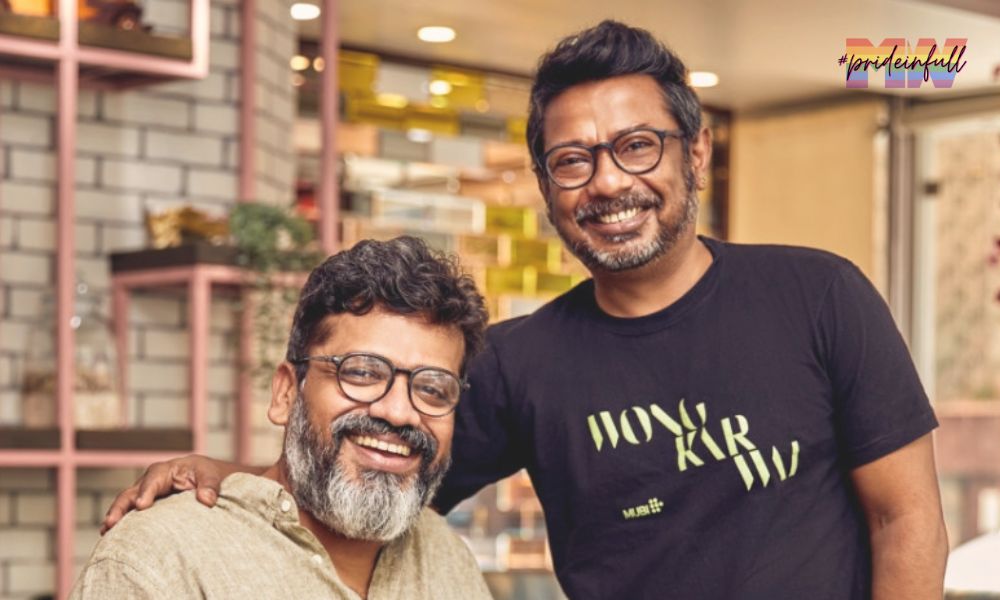Bollywood
A significant amount of venom is directed towards me: Onir

In his book, I Am Onir And I Am Gay, filmmaker Onir discusses his upbringing, growing up years in Bhutan, and love affair with movies.
“Equality is non-negotiable,” argues director Onir in his biography, I Am Onir And I Am Gay, which discusses his upbringing, growing up in Bhutan, and his love of movies. He shares everything, whether it’s his failures, weaknesses, or adventure, and still says, “It took about four to five years of persuading me, to write my autobiography, since (to me) it appeared like I’d be retiring.”
The book was co-written with his sister, editor-screenwriter Irene Dhar Malik, and its publication coincides with Pride month, but Onir claims it’s completely “accidental,” adding, “We felt Pride was just around the horizon, so I’ll release it in this month.” That seemed appropriate. But even the writing happened by chance since I was talking to my agent regarding the book rights to The Carpet Weaver (an LGBTQIA+ novel by Nemat Sadat) and we began talking about writing my biography.”
My sister and I were talking about how many people had written to me to inquire about my vacation and what I had been up to during the lockdown.” their life.” I didn’t have any points of reference. Even now, there aren’t many individuals in the field or outside who freely discuss their lives. I figured if I did that, it would empower a lot of people and help them manage their lives better!
When the director chose to write this book, he describes the process as “organic,” since he had hardly read previous autobiographies before writing his own. He also enjoys reading Pablo Neruda, Hanif Kureishi, and Milan Kundera. “I have a thing for excellent literature.” I was nervous the first time I chose to write. Either I go all in or I don’t write at all. It wasn’t tough after I made my decision. Going back and understanding everything was therapeutic. Growing up in Bhutan with my parents, there were many things we weren’t informed about men and women’s rights. We just went through it. My mother’s passion for movies and art flowed down to us. And the idea of what is good and bad, whether it is about human rights or society, comes mostly from baba (father),” he remembers.
He is rather active on social media and often receives hostility, stating, “There is always a considerable amount of vitriol that comes my way from homophobic folks.” They sometimes attack me because I also speak out about other problems that I passionately oppose. Everything is inappropriate, and the abuses are all homophobic. But I constantly tell myself that if ten people mistreat me, there are a hundred more who adore me, therefore assaults don’t matter.”
As an out and proud homosexual man, he claims that one of the most difficult obstacles he has faced is being criminalized by law until 2018. Being labeled a criminal due to sexual orientation wasn’t fun. The police stifled gay gatherings and bars. It wasn’t good to act as if you were always on the run! Even though the Supreme Court decriminalized [homosexuality], we are still not treated equally in many areas, such as marriage and adoption rights, or the opportunity to serve in military services… Even today, as a filmmaker, conveying an LGBTQIA+ story, unless sanitized or heteronormative comfort, is difficult. It’s not simple to create the films I want to make. It wasn’t easy back then, and it’s still not easy today. It’s simply that you’re more powerful now that you’re no longer viewed as a criminal. Many more individuals from the community are showing up, as well as allies who want to support you on your path.”
You may like
-
LSD 2 and Do Aur Do Pyaar box office day 5: ₹28 lakh for Vidya Balan, ₹8 lakh for Dibakar
-
Shehnaaz Gill Dazzles with New Furry Look; Fans Gasp
-
BB17 winner Munawar Faruqui romances Shehnaaz Gill on a melodic song; Watch video
-
Elvish Yadav Romances Shehnaaz Gill in Dhup Lagdi Reel, Goes Viral
-
Shhnaaz Gill prays at the Siddhivinayak Temple for her song Dhup Lagdi
-
Sushmita Sen discusses wedding plans and ex-friendship: ‘My marriage is inevitable’












